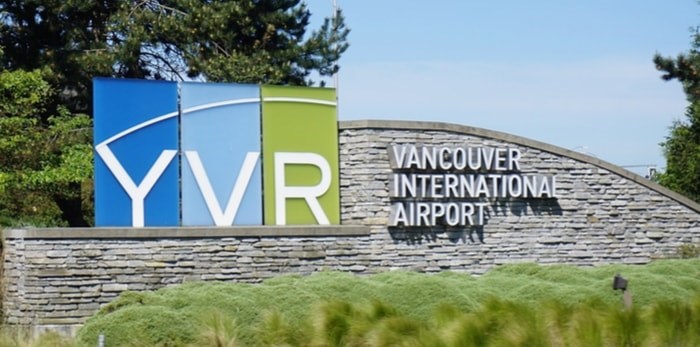For 2019, the eyes of the transportation industry in B.C. and Western Canada will be trained on issues ranging from the Canadian domestic rail capacity crunch to the potential of chilled trade relations with China.
The issues paint a picture of wait-and-see uncertainly in the transport sectors over the next year, although one subsection – commercial aviation – is expecting a smoother ride than others.
That’s because Vancouver International Airport (YVR) began its $9.1 billion expansion program last year. The project will last an estimated 20 years and include 75 different initiatives ranging from terminal expansions to new parking and vehicle rental facilities, but officials said they have been able to stay ahead of those numbers by proactively adding capacity.
However, even with recent airport improvements, Vancouver Airport Authority president and CEO Craig Richmond said the program has to proceed because estimates released in December predict that YVR can expect annual passenger numbers to hit 29 million by 2020 and 32 million by 2022. The airport will also have an annual target cargo capacity of 327,000 tonnes in two years.
“We won’t stop there,” Richmond said at the Dec. 18 ceremony welcoming the airport’s 25-millionth passenger. He added that the efficient handling of increased traffic is crucial because the income it generates will be reinvested into YVR, creating a virtuous cycle of positive financial reinforcement. “We have to keep up, because our facilities are nearing capacity…. Twenty-five million is five times the population of B.C.”
That availability of capacity for 2019 does not stretch into other transport subsectors, although there are signs of improvements on one critical front. Local transport industry officials have long been critical of the limited rail capacity in Western Canada, as increased Asian demand for Canadian grain has put pressure on Metro Vancouver’s available space. Japan and South Korea are both major importers of Canadian wheat and flour.
The situation was exacerbated in late 2017, when “harsh winter conditions, combined with capacity challenges experienced by some railways” hampered ports like Vancouver and Prince Rupert.
The issue was again highlighted last September when typhoon Mangkhut hit Hong Kong. It closed the city’s massive port for about two days, causing backups at B.C. ports, rail yards and other facilities as the glut of goods from Asia held up by Hong Kong’s closure rushed into Vancouver at once.
At the time, Vancouver-based Chamber of Shipping vice-president Bonnie Gee said cargo backlog coincided with the start of the grain season and the onset of winter, which is typically a major stress point for Western Canada’s rail systems.
“It’s when all the containers start arriving at the same time that we’ll see a problem,” Gee said. “The export containers backlog will build, but it won’t necessarily be on the shipyards.”
Back in April, Canadian National Railway announced a $3.4 billion capital spending plan, $400 million of which is focused on infrastructure expansion in the four western Canadian provinces.
Observers say the progress of such expansion plans, and the increasing number of crude oil-by-rail shipments from Alberta as projects like the Trans Mountain pipeline are delayed, will be key points to watch in the new year.
Then there’s the China factor. The Huawei Technologies Co. Ltd. case in December caused a rift between Ottawa and Beijing, and Chinese calls for boycotts have worried Canadian and B.C. businesses that have heavier exposure to the Asian market.
But while some fear the incident could hamper business with Canada’s second-largest trading partner and shipping between the two markets, Asia Pacific Foundation of Canada president and CEO Stewart Beck said Huawei CFO Meng Wanzhou’s release on bail has lowered tensions slightly between Canada and China.
He added that sector-wide economic downturns caused by Beijing’s retaliation are unlikely unless the situation changes again. Meng’s U.S. extradition hearing process is scheduled to start on February 6.
“My sense is, from my own experiences working in China and Asia in general, from a commercial perspective, the relationship has to really go down to cover the whole spectrum of the trading relationship between the two countries,” Beck said. “So this may impact certain sectors at certain periods of time, depending on what’s happening for the next little while. My own sense is our business will move forward as usual.”
He added that tourism and international education are among the transport-related areas where numbers are not expected to drop significantly.
– Chuck Chiang, Business in Vancouver



